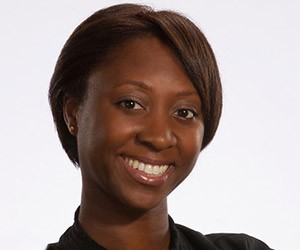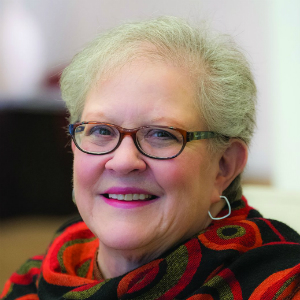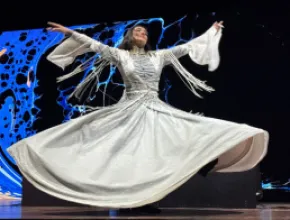I interviewed three colleagues, all of whom I know from our local and national industry involvement. What I found interesting was that their beliefs—regardless of number of years in the industry or years as a member of a professional organization—were so similar. I hope leaders of the various industry associations will read this and take note, and further, reach out to those who want to continue to contribute. These three colleagues and I have more to give! Note: Some responses have been edited for space and clarity.
Interviewees are:
Sekeno Aldred, CMP, Director of Events and Sponsorships, Goodwill Industries International (SA)
Charles Chan Massey, CMP, Founder and CEO, SYNAXIS Meetings & Events, and Executive Director, The Personal Stories Project (CCM)
Jean Riley, Senior Event Planner, American Institute of Aeronautics and Astronautics (AIAA) (JR)
1. How many years have you been in the meetings industry? And of those, for how many have you held professional membership/s?
SA: I have held a professional membership for 16 of the 19 years that I have been a part of the meetings industry (Quite scary, since I am just peaking and am getting into my groove).
CCM: I have been in the industry for more than 30 years. I started my career during college on the hotel side, working as a bellman, and worked my way up over the years, becoming director of sales in 1994. I transitioned into planning that same year as a side business/part-time job. Over the years I have been a member of organizations such as an ASAE-allied society and SITE, and served on the boards of both organizations. I have been a consistent member of MPI since August 1992 (23 years).
JR: Counting my hotel experience, I have been in the industry since 1982: 33 years. Of that time I have been a member of PCMA for five years.
2. What initially prompted you to join a professional organization? For what reasons do you continue to belong … or do you?
SA: I initially joined a professional organization (MPI—Meeting Professionals International) because I wanted to demonstrate to [my employer] at the time that I could provide them with advice and direction of the meetings we planned based on what I learned from experts in the industry and from my peers. As time passed on, I was able to see that I was able to garner so many benefits from belonging to an organization. I have not only been able to learn about the industry, but I have been able to develop as a professional that has propelled my career and my credibility with my industry peers and within my organization. I have gained relationships that help me in my day-to-day task of planning events and life-long friendships that have impacted my journey of life.
CCM: I first joined MPI in 1992 when I was a hotel sales person at the suggestion of my boss. Over the years I have consistently maintained my MPI membership, even when I had to pay for it out of my own pocket, because I felt it was important for both my professional development and the networking opportunities offered. Over the years both the education and networking have become less relevant to me, and this year I told myself “one more year.” I’ve essentially only been renewing my membership as I felt almost “duty bound” as a past chapter president (I was president of the Southern California chapter in 1998/1999), but even that isn’t enough any longer. When my membership comes up for renewal next year I won’t be renewing.
JR: Initially I wanted to attend the PCMA Convening Leaders Conference in Seattle, so I joined to get the member discount. But I joined again in 2012 when I attended PCMA Convening Leaders in San Diego and decided that I wanted to get more out of and give more to the organization. I felt with my daughter grown I had the time and energy to commit to PCMA. I also wanted to make more contacts in the industry.
3. Lots of new organizations (SPIN, AWE, as examples) are popping up to challenge the membership model we’ve all known. How will those organizations impact your involvement with the traditional CIC member groups?
SA: I really like that there are new organizations that are being formed organically based on the changing and growing needs of our industry professionals. For me personally, I would like to attend and become engaged with other groups in addition to also being involved with my current traditional CIC member group, but my reality, and I am sure the reality of many others, is the ability to be fully engaged [is very important].
CCM: Certainly these organizations are competing for market share, for people’s money and for people’s time. They do seem to be offering much of what is lacking in the mainstream meetings industry associations and this is why more and more senior-level folks seem to be gravitating toward them. I expect this trend to continue.
JR: I am not familiar with these other organizations.
4. Describe your level of involvement and if it is more/less or the same as it was a year or two ago, and why.
SA: My level of involvement has been consistently the same. In my current new role and as a mother of two active young kids, I am working on how to maintain balance and to not disengage. It is not easy, but it can be done—just in a different way.
CCM: I hit the ground running in 1992, serving on the [MPI Southern California] chapter board of directors almost from the beginning, then worked my way through several vice presidencies (Membership, Education) and was elected chapter President for the 1998/1999 chapter year. The year after I was chapter president I served on MPI’s International Board of Directors for a year followed by several [international] committees, returning to chapter leadership in 2003 as Vice-President, Leadership Development. Over the past 10 years, as I noticed that there were fewer and fewer opportunities where my talents would be welcomed, my volunteerism has waned.
JR: My involvement has grown steady over the past three years. I became a member of Professional Development Committee (PDC), I championed a couple of chapter events, accepted the role of co-chair of PDC with a two year commitment that culminated with being Chair of the PDC this year. I will continue in a lessor role next year as a member of the Sponsorship Committee. I decided when I joined the second time that I was going to become really involved, probably mostly to expand my scope of contacts.
5. What do you expect from your professional associations?
SA: I expect that the professional associations continue to provide both learning and networking opportunities that allow me to engage in multiple (national, local, traditional, non-traditional, etc.) ways while challenging the status quo. As my organization expects that I will provide them with cutting-edge learning opportunities, I expect the same from my professional organization, or more, so show me how I can do this within my organization.
CCM: I expect the organization to offer opportunities where people new to the industry can thrive—they can be given opportunities to learn, grow, go outside of their comfort zone, take risks. As people advance in their careers I expect the organization to offer things for them as well. Personally, I’ve had to create my own opportunities, specifically within MPI, over the last several years, as I haven’t found much readily available there for me. I’m fairly certain I’m not the only one that feels this way either. [Note from Joan: he’s right! We “veteran volunteers” are pushed aside with too many organizations. I’ve had the same frustration with MPI and ASAE.]
JR: I expect an association to provide education and opportunity for networking. I would also like an association to promote our profession and its value.
6. What is one aspect of your professional association(s)’ vision/mission/policy/activities you would want enhanced?
SA: I appreciate the CIC member organizations banding together to create the Meetings Mean Business campaign, but I would like to see like to see additional grassroots efforts on other issues that affect our industry that can range from elevating our service industry professionals, which help to uplift individuals as well as communities, to expanding the range of training.
CCM: I would like to see MPI follow their Principles of Professionalism to the letter. In particular, I feel adherence to this part may be lacking: “Respecting Diversity: Embrace and foster an inclusive business climate of respect for all peoples regardless of national origin, race, religion, sex, marital status, age, sexual orientation, physical or mental impairment.”
JR: I would really like PCMA to fight for wage equality for women. I think men still make more in similar positions across the industry. I would also like to see meeting planners more respected in their associations and corporations. Meeting planners especially in the association market are responsible for a large part of the revenue that an association budgets. I do not feel that our positions are paid according to the level of commitment of time and responsibility. [Joan’s note: YES! with a fist pump!]
7. When it comes to advocacy for social justice, taxes, other issues that impact meetings and tourism, what do you expect from your professional association/s?
SA: As an industry organization, my expectation is that we would be “head and shoulders” above the rest in engaging on issues for social justice as there is a direct correlation to how we can enhance the communities we meet in.
CCM: I have become increasingly involved in issues of social justice [and] helped make telephone calls in support of the recent Houston Equal Rights Ordinance ballot initiative, which unfortunately failed at the ballot box. When I didn’t see any official response or statement from any of the industry organizations I contacted Paul Van Deventer, MPI’s president and CEO, who responded as follows: “While our community represents a globally and politically diverse group of perspectives and experiences, MPI is not a political organization, but a professional association; it is not in our charter to advocate on political issues, except where they directly impact the meeting and events industry. We are proud to stand by our MPI Principles of Professionalism which speak to our commitment to respect diversity, and as such we oppose any form of discrimination, but based on our charter MPI will not be making any further official statement at this time. Thank you again for bringing the issue to my attention.”
Discriminatory practices absolutely “directly impact the meeting and events industry” and frankly I’m shocked that MPI senior staff and volunteer leadership can’t see that it does. This response is the primary reason I have decided not to renew my MPI membership.*
[NOTE: See asterisk at the end of this story for a MAJOR UPDATE!]
JR: I definitely expect PCMA to work with other organizations to promote travel and tourism.
*Just before we went live with this, we learned this from Texas Competes. Thanks to Charles and others who noodged MPI to do the right thing. Thanks, MPI for doing the right thing.
"We are THRILLED to have Meeting Professionals International (MPI) as our newest pledge signer. MPI is the world's largest global meeting and event industry association, with 18,500 members in 22 countries and more than $22 billion in annual global buying power."
Comments? Please go to this month's Friday With Joan blog post to discuss this Q&A and the main blog.







